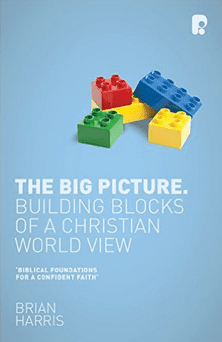Three books landed on my desk the same day, books about theology. The church with sound theology is much better than a church without theology, and a church that is anti-theology will soon have someone in it who observes that anti-theology is actually a kind of theology (that won’t last or sustain our faith). This is not about eithers and ors — we don’t have to choose between education and missional praxis, but to combine the best of both into a passionate fire that burns for God and for others. Jesus urged us to love God with all the mind too.
What do you look for in a standard theology text? Which is your favorite?
 So what were the three books? First, Michael Horton’s well-oiled and consistently-Reformed The Christian Faith: A Systematic Theology for Pilgrims on the Way. Horton’s book is a textbook, and it feels like one and reads like one and looks like one. I like his organization, which departs from the very typical ordo salutis approach of much of Protestant thinking (God, humans, sin, Christ, salvation, etc) by giving God the guiding order: Knowing God, God who lives, God who creates, God who rescues, God who reigns in grace, and God who reigns in glory. This is a 1000 page systematic theology. It’s not a proof-text approach through the lens of doctrines, but a theological approach to theology in the tune of confessing evangelicals.
So what were the three books? First, Michael Horton’s well-oiled and consistently-Reformed The Christian Faith: A Systematic Theology for Pilgrims on the Way. Horton’s book is a textbook, and it feels like one and reads like one and looks like one. I like his organization, which departs from the very typical ordo salutis approach of much of Protestant thinking (God, humans, sin, Christ, salvation, etc) by giving God the guiding order: Knowing God, God who lives, God who creates, God who rescues, God who reigns in grace, and God who reigns in glory. This is a 1000 page systematic theology. It’s not a proof-text approach through the lens of doctrines, but a theological approach to theology in the tune of confessing evangelicals.
Second, the Evangelical Free Church of America, guided by Greg Strand and Bill Kynes, has produced both a new statement of faith and a thorough discussion of its conservative evangelical theology in Evangelical Convictions (A Theological Exposition of the Statement of Faith of the EFCA). To be sure, this book will be most attractive to those in the EFCA and those who are close to its circle in the evangelical world, but I’d like to suggest that theologians of a wider perspective can gain from seeing how one denomination thinks theologically when it seeks to speak for evangelicalism. The approach enhances the ordo salutis: God, Bible, human condition, Christ, work of Christ, Holy Spirit, church, Christian living, Christ’s return, response and eternal destiny. In other words, theology essentially is shaped by salvation. Thoroughly Protestant in the conservative evangelical key.
 Third, somehow I missed this book and I am hereby announcing a series on theology on this blog about this book: Thomas Finger’s A Contemporary Anabaptist Theology: Biblical, Historical, Constructive
Third, somehow I missed this book and I am hereby announcing a series on theology on this blog about this book: Thomas Finger’s A Contemporary Anabaptist Theology: Biblical, Historical, Constructive. I’m not only biased, I’m excited about Finger’s new book and so want to have a conversation about an anabaptist theology — one of the few available — at this site.
“Mennonites have often stressed biblical authority and mission in ways that sound ‘evangelical.’ Yet their promotion of ethical living and social betterment seems strangely ‘liberal.’ In these days of evangelical-liberal ecumenical tensions around the world, might Anabaptist theology suggest ways of affirming elements of both?” Indeed! The original Third Way — neither Protestant nor Catholic.











